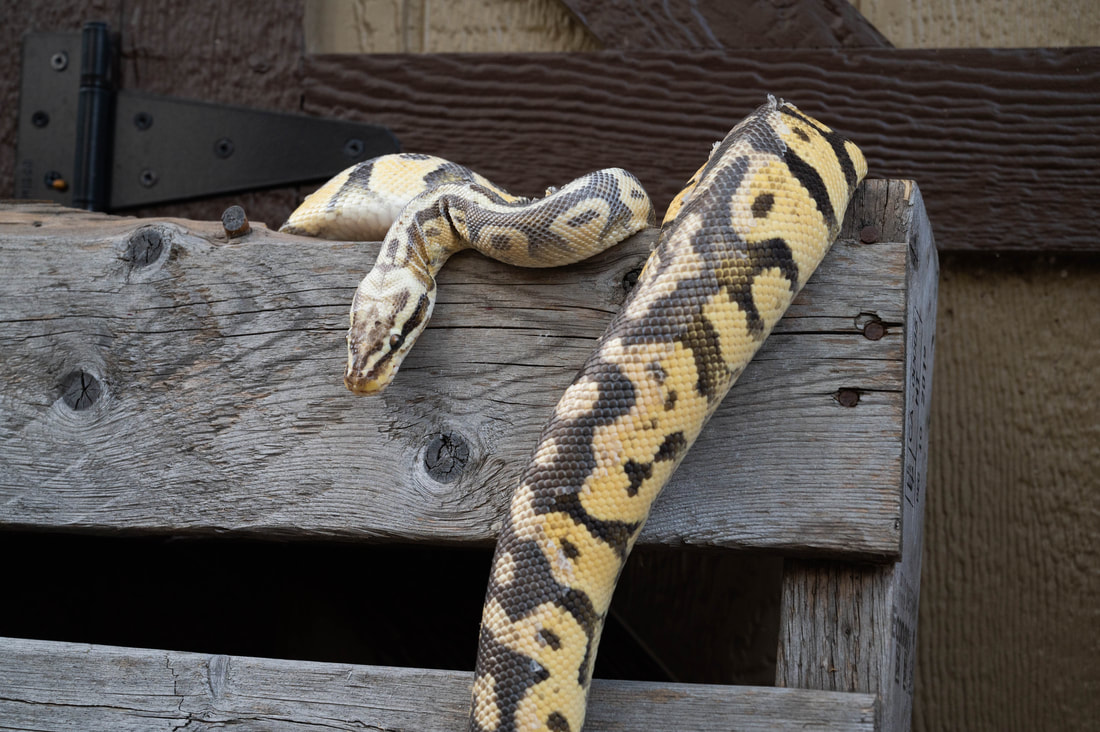Snakes
Snakes have special needs, particularly a heat source. Snakes rely on external heat to regulate their body temperatures and it is very important to provide them with an adequate heat source. But it is also important to provide a space in the tank to allow the snake to be able to get away from the heat source. Aquarium tanks are the most common way to house snakes. Tanks come in a variety of sizes and shapes, but always use a secure lid, because snakes are great escape artists.
Always provide a place for the snake to hide so they feel secure. A box, log, pvc pipe or anything without sharp or rough edges that a snake can crawl into or under. Most snakes eat mice, rats or other small animals. Some will eat crickets and other insects. Most snakes have learned to eat once frozen but thoroughly thawed mice, but be prepared to feed live food.
Always provide a place for the snake to hide so they feel secure. A box, log, pvc pipe or anything without sharp or rough edges that a snake can crawl into or under. Most snakes eat mice, rats or other small animals. Some will eat crickets and other insects. Most snakes have learned to eat once frozen but thoroughly thawed mice, but be prepared to feed live food.


